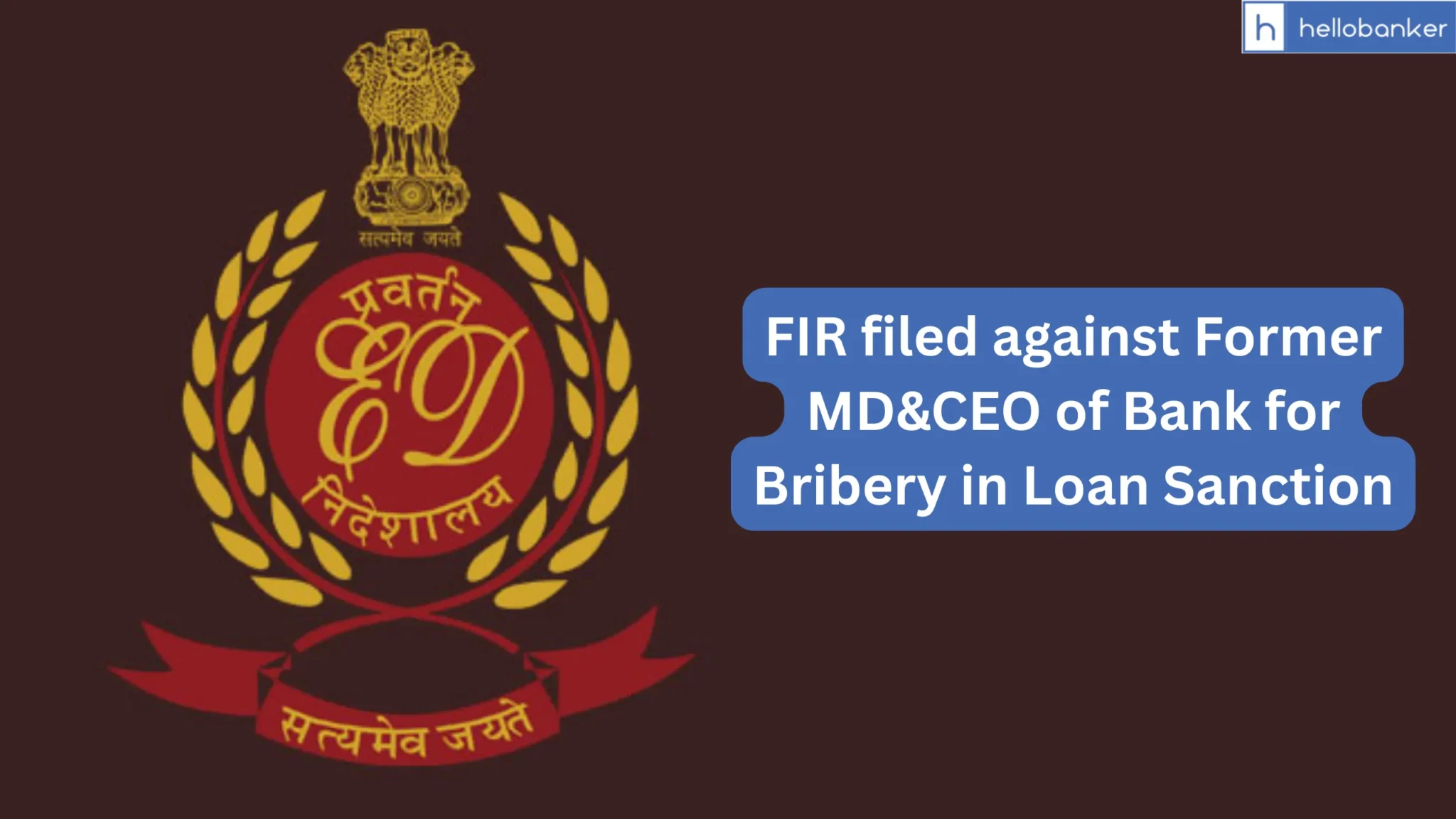Hyderabad: The Directorate of Enforcement (ED) has provisionally attached two properties in Ranga Reddy district valued at ₹1.1 crore under the Prevention of Money Laundering Act. The properties, linked to Rohit Asawa, son of former MD & CEO of AP Mahesh Cooperative Urban Bank Umesh Chand Asawa, are part of an investigation involving allegations of unethical loan approvals and kickbacks by top bank officials.
Unraveling a Banking Scandal
The Hyderabad Zonal Office of the Directorate of Enforcement (ED) has taken significant action against alleged financial malpractice involving the AP Mahesh Cooperative Urban Bank. With the provisional attachment of two properties valued at ₹1.1 crore, the ED is shining a light on a web of deceit that reportedly involves high-ranking officials of the bank misusing their positions.
These properties, located in Adibatla Village of Ranga Reddy district, are owned by Rohit Asawa, the son of Umesh Chand Asawa, who previously held the position of Managing Director (MD) and Chief Executive Officer (CEO) of the bank. This move by the ED comes in response to two FIRs filed at the Banjara Hills Police Station against the bank’s top brass, including then-Chairman Ramesh Kumar Bung and then-Senior Vice-Chairman Puroshatamdas Mandhana.
The Allegations: A Detailed Account
The allegations are concerning and multi-faceted. Umesh Chand Asawa is accused of sanctioning loans to companies like M/s Biomax Fuels Ltd. and its affiliates by accepting non-viable third-party properties as collateral. These properties were reportedly embroiled in litigation, rendering them unsuitable as collateral. In exchange for these unethical loan approvals, Asawa allegedly received hefty commissions ranging from 2% to 4% of the total loan amounts.
Investigators believe that Asawa received about ₹1.1 crore in cash from the MD of Biomax Fuels Ltd. as kickbacks, which the ED has classified as “Proceeds of Crime.” This illicit money was allegedly funneled into purchasing properties in his son’s name, showcasing a troubling intertwining of personal gain and public trust in the banking sector.
Manipulating Property Values
The properties in question were falsely recorded with a purchase value of approximately ₹26.7 lakh, while their actual market value stood at over ₹1.5 crore. This glaring discrepancy raises serious questions about how financial integrity has been compromised. In a bid to obfuscate the true origins of the funds, part of the transaction was executed in cash, while the remainder was funneled through standard banking channels, effectively mixing illegal proceeds with legitimate transactions.
The investigative efforts of the ED have resulted in the attachment of these properties as they continue to delve deeper into this case. The consequences of these actions not only affect those directly involved but also raise broader concerns regarding the integrity and operations of the Indian banking sector as a whole.
The Broader Implications for the Indian Economy
This incident underlines the heightened need for regulatory measures in the Indian banking industry. As India’s financial landscape grows more complex, unethical practices like those alleged against the bank’s officials could have far-reaching consequences. The trust of customers and investors is paramount, and incidents like this threaten to undermine confidence in the banking sector.
For instance, the recent upheaval in the banking sector has echoed through various financial markets, impacting everything from stock valuations to the Repo Rate set by the Reserve Bank of India (RBI). If left unchecked, such malpractices can contribute to rising inflation and affect the Indian economy’s overall stability.
Here’s a brief summary of the key facts surrounding the current situation:
| Key Facts | Details |
|---|---|
| Properties Attached | 2 properties valued at ₹1.1 crore |
| Involved Individuals | Umesh Chand Asawa, Ramesh Kumar Bung, Puroshatamdas Mandhana |
| Allegations | Loan approvals based on non-viable collateral, kickbacks received |
| Reported Kickbacks | ₹1.1 crore |
| Discrepancy in Property Value | Recorded at ₹26.7 lakh, actual value over ₹1.5 crore |
What Lies Ahead?
As the ED continues its investigation, further details regarding this case are expected to emerge. The ramifications of these findings could extend beyond just the individuals involved, potentially prompting a reevaluation of regulations governing the banking sector in India. The need for transparency and stringent enforcement of compliance measures has never been more crucial, as the integrity of financial institutions directly influences the stability of the Indian economy.
Public trust in the banking sector is vital. As we await more updates, it remains a pivotal moment for the financial landscape of India, where accountability measures must be clearly defined and effectively implemented to safeguard against future occurrences of such scandals.
Bankerpedia’s Insight 💡
This case highlights ongoing concerns about corruption within India’s banking sector, particularly within cooperative banks. The alleged misuse of authority not only undermines public trust but may also lead to tighter regulations, affecting credit accessibility for legitimate borrowers. Moreover, the attachment of properties showcases an aggressive stance against financial crime, potentially deterring future misconduct. For individuals, it’s crucial to remain vigilant and avoid any dealings that may involve dubious lending practices, ensuring that they choose reputable institutions for their financial needs.
How Does This Affect the Banking Ecosystem? 🏦
- Bank Employees → Increased scrutiny and potential job insecurity for bank employees.
- Bank Management → Increased scrutiny and risk management needed for lending practices.
- Bank Customers → Increased scrutiny and potential risks for bank transactions.
- Investors / Shareholders → Increased regulatory scrutiny may affect share prices negatively.
- Regulators (RBI, SEBI, Govt.) → Increased scrutiny on banking practices and regulatory compliance.
- General Public → Increased public awareness of financial misconduct risks.
Research References 📚
Loved our Research? ❤️
Bankerpedia turns financial confusion into clarity!
Subscribe to our YouTube channel for unbiased insights, financial literacy & practical banking wisdom.










